Common Blackjack Mistakes to Avoid in January 2026
Blackjack is a game of strategy. Yet even skilled players can make common blackjack mistakes that impact their success.
Having a solid basic strategy chart can help you avoid these pitfalls and make smarter decisions at the table. After all, blackjack is one of the most player-friendly games in the casino in terms of return to player (RTP), so it would be awful to give away any advantage!
Let's learn more about online blackjack, how to play it, the best casino apps to play on, common blackjack mistakes to avoid, and more.
🏆 Our Top Recommended Real Money Online Casinos For Blackjack

- Wide Range of Casino Games
- Generous Free Spins Welcome Bonus
- No Wagering Requirements

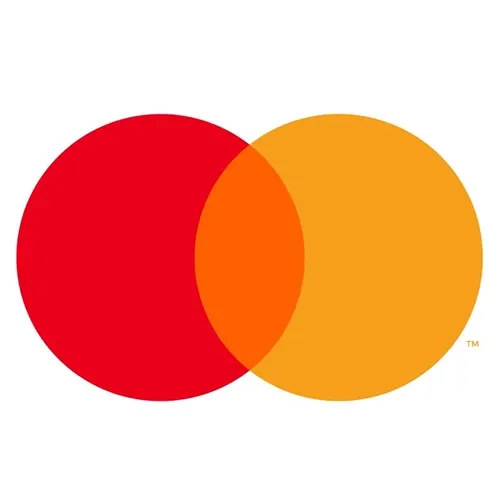








Promo Code

- Multiple No Deposit Bonuses
- Lucrative Progressive Jackpots
- Fast Payout Speeds











Promo Code

- Multiple Welcome Bonuses
- Fanatics Exclusives
- Optimized Mobile Play







- Exceptional Rewards Program
- Several Live Casino Games
- Intuitive Casino App












Promo Code

- Good Selection of Casino Games
- Solid Welcome Offer
- High Quality Mobile App

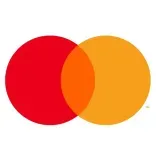







- 3,500+ Casino Games
- No Deposit Bonus & Deposit Match
- Exceptional Rewards Program
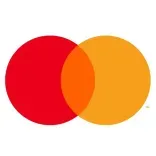










- 1000+ Casino Games Available
- Generous Welcome Offer
- Fast Payouts






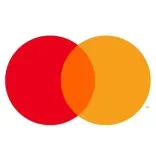
Promo Code

- 2,000+ Casino Games
- 100% Deposit Match Bonus
- Access to BetMGM Rewards












Promo Code

- Slots, Table Games, Live Dealer Games
- Several Video Poker Options
- Intuitive, User-Friendly App










- Slots, Table Games, Live Dealer
- Many Exclusive Games
- Welcome Bonus & Ongoing Promos












Promo Code

- 1,500+ Casino Games
- Generous Welcome Bonus
- Exceptional Mobile Casino App











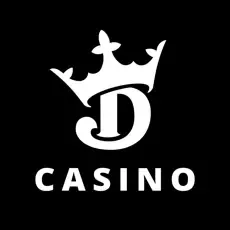
- Generous Welcome Bonus
- Several Ongoing Promotions
- Wide Range of Table Games










♦️ Online Blackjack Rules and Tips
The game aims to get as close to 21 as possible without going over. The fundamental rules are:
- Card Values: Number cards (2-10) are worth their face value, face cards are 10, and Aces are 1 or 11.
- Gameplay: Players start with two cards and can "hit" for more or "stand" with their current hand. Exceeding 21 is a "bust." A "blackjack" is a 21 with the initial two cards.
- Options: Players can "double down" to double their bet for one more card or "split" pairs into two hands.
🗝️ Key Blackjack Strategies
- Soft vs. Hard Hands: A hard hand has no Ace, or the Ace counts as 1; a soft hand includes an Ace counted as 11.
- Hitting on Soft Hands: Hit on a soft 17 (Ace and 6) if the dealer has a strong card.
- Standing on Strong Hands: Stand on a hard 17 or higher.
- Splitting: Always split 8s and Aces.
- Doubling Down: Double down on 11 against a dealer's weak card (5 or 6).
- Surrendering: If allowed, surrender on a hard 15 or 16 against a dealer's 10.
🤔 How Do Blackjack Strategies Work?
Game strategies are vital for improving your odds and managing losses. Key blackjack strategy includes:
- Basic Strategy Chart: Follow a chart for hitting, standing, splitting, or doubling down based on your hand and the dealer's card. For example, hit on hard 12-16 if the dealer shows 7-Ace, stand on hard 17 or higher, always split the Aces and 8s, and double down on 11 against weak dealer cards (2-6).
- Doubling Down: Double your bet for one card, usually with strong hands, like 11 against a dealer's weak card or hand.
- Counting Cards: Track high and low cards to predict outcomes, though it's discouraged in casinos and tough online.
- Hole Carding: Predict the dealer's facedown card based on their actions, which is more challenging when playing blackjack online.
Avoid these Most Common Blackjack Mistakes:
- Insurance Bets: Avoid making an insurance bet due to its high house edge unless you are card counting.
- Bankroll Management: Set and stick to a budget. For example, with a $500 bankroll, bet $25 per hand.
- Dealer's Up Card: Adjust your approach based on whether the dealer's card is weak (2-6) or strong (7-Ace).
- Start Small: Use smaller bets initially to understand table dynamics.
- Avoid Gambler's Fallacies: Each hand is independent; don't base decisions on past outcomes.
🎲 The Most Common Blackjack Mistakes and Ways to Avoid Them
If you're looking to become a Blackjack connoisseur, avoiding common errors is important to improve your game and maximize your chances of winning. Here are ten common mistakes blackjack players make, explanations of how these errors can negatively impact your gameplay, and strategies to avoid them. For a more in-depth look at how to refine your blackjack game without getting caught up in emotional semantics, feel free to check out our gambling cognitive biases as well.
- Not Knowing Basic Terms and Strategies: Many players lack knowledge of basic terms and strategies, which can lead to poor decisions.Tip: Use a strategy chart to guide your moves. Learn more about the blackjack glossary.
- Copying the Dealer or Other Players: Mimicking others can lead to mistakes.Tip: Focus on your hand and the dealer's card.
- Taking the Insurance Bet: Insurance bets have a high casino house edge.Tip: Avoid insurance unless counting the cards.
- Misjudging the Dealer's Bust Potential: Assuming the dealer will bust can lead to bad decisions.Tip: Adjust your approach based on the dealer's up card.
- Not Understanding the Value of an Ace: Misusing the Ace can cause busts or missed opportunities.Tip: Use the Aces as 11 when beneficial; otherwise, use them as 1.
- Not Utilizing Surrender: Surrendering can minimize losses on poor hands.Tip: Surrender a hard 15 or 16 against a dealer's 10.
- Playing Multiple Tables at Once: Playing multiple tables can lead to confusion.Tip: Focus on one table for better decision-making.
- Believing You're 'Due' for a Win: The gambler's fallacy can lead to reckless betting.Tip: Each hand is independent; stick to your strategy.
- Playing for Too Long: Fatigue can impair your decisions.Tip: Set time limits and take breaks.
- Playing Side Games With Lower RTP: Side bets often have a lower return-to-player rate. As a general rule, stick to standard games and avoid these bets.
📊 Making a Blackjack Card Chart
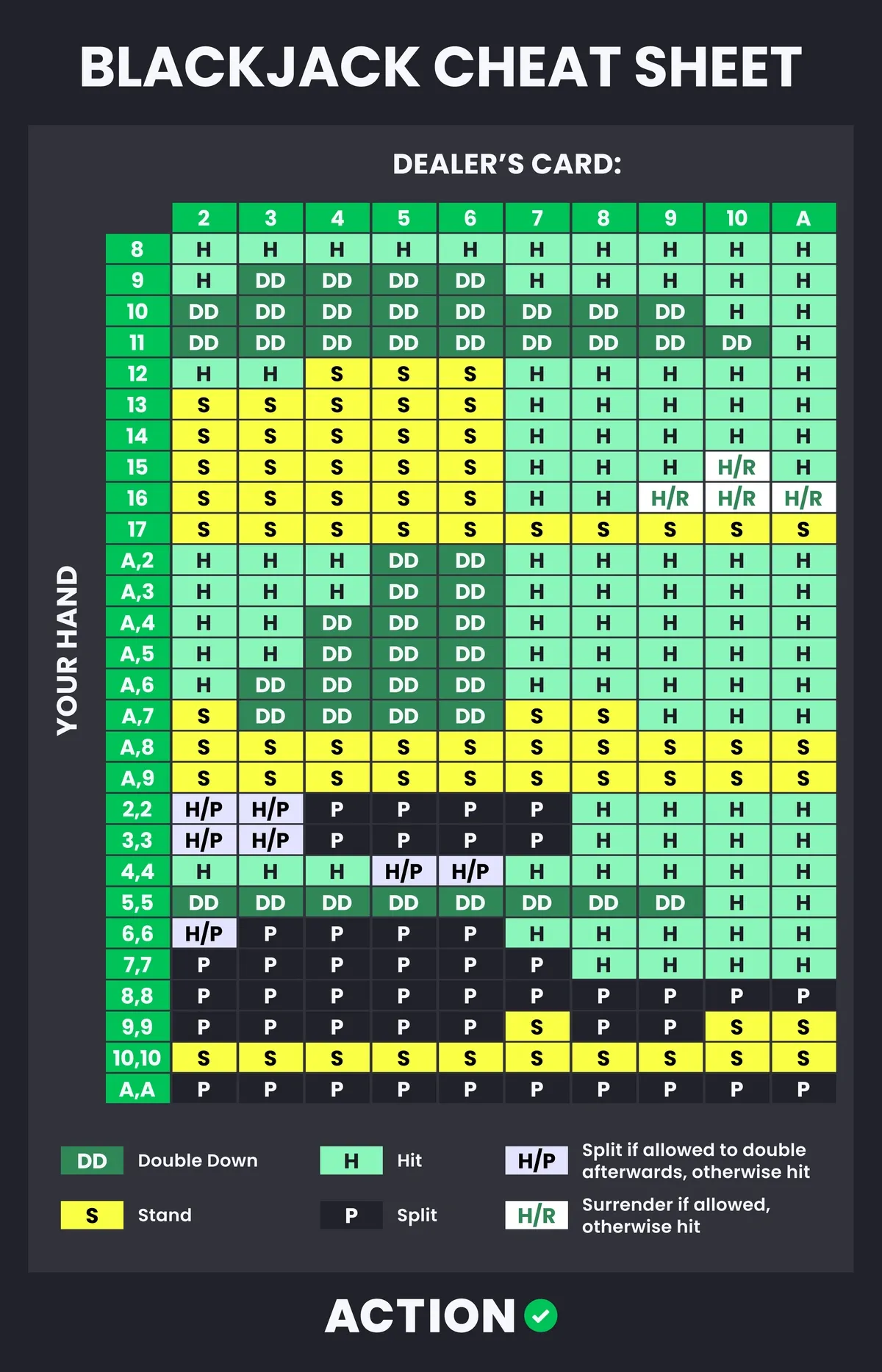
A blackjack chart is a handy guide that suggests the best move based on your hand and the dealer's upcard. Here's how to understand and use these charts effectively.
💡 Understanding Charts
A standard chart displays the optimal move for each hand and dealer's upcard, using abbreviations like H for Hit, S for Stand, and D for Double Down. To use the chart, match your hand with the dealer's upcard to see the recommended action. Here are some other factors to consider:
- Dealer Rules: Whether the dealer hits or stands on soft 17 impacts your approach.
- Number of Decks: Strategy changes between single and multi-deck games.
- Doubling Down: Know the rules on when doubling down is allowed.
- Play for Fun: The house has an edge, so enjoy the game.
- Set a Budget: Stick to a budget to keep the experience enjoyable.
- Avoid Chasing Losses: Stay with your approach even after a loss.
🎴 Single Deck Blackjack Charts
Single-deck games give players a slight advantage because it's easier to track the cards dealt. Strategy charts for single-deck games might recommend more aggressive plays compared to multi-deck games. However, multi-deck strategies are more commonly used, as most casinos prefer these games.
📈 Deviations and Rule Variations
Even with a standard strategy chart memorized, rule variations may require adjustments. For example, some games allow doubling down on any two cards, while others restrict it to specific hands. Adapting to these variations can improve your odds.
⚖️ Betting Patterns and Responsible Gaming
While a straightforward approach is a good start, advanced betting patterns can be applied. Always keep your bankroll and risk tolerance in check, practice responsible gaming, and set a budget before you start playing.
💰 When Should I Stand, Double Down, or Surrender?
Knowing when to stand, double down, or surrender can significantly improve your gameplay. Here are some key strategies:
➡️ Stand on Hard 17 or Higher
Regardless of the dealer's upcard, you should always stand on a hard 17 or higher. A hard 17 consists of cards that total 17 without an Ace, such as 8-9 or 7-10. Standing is the correct play because you have a strong hand that is unlikely to improve by drawing another card.
➡️ Double Down on 11
Doubling down on 11 is almost always the correct strategy. By doubling your bet and taking only one more card, you increase your chances of winning more money when you hit a 10-valued card for a total of 21. The only exception is if the dealer has an Ace, in which case you should hit instead of doubling down.
➡️ Stand With Hard 13-16 Against Low Dealer Cards
When you have a hard total between 13 and 16, you should stand if the dealer has a low card (2-6). This is because the dealer is more likely to bust with a low card, so you don't need to risk drawing another card and going over 21. However, if the dealer has a high card (7-Ace), you should hit to try to improve your hand.
➡️ Don't Split 10s
Splitting 10s is rarely a good idea. Tens make a strong hand of 20, which is close to the ideal total of 21. By splitting, you risk turning two strong hands into two weak ones. The only time you should consider splitting 10s is if the dealer has a 5 or 6, in which case splitting can be a profitable play.
➡️ Always Split Aces
Splitting aces is always the correct play. As these are the most valuable cards, splitting them gives you two chances to get a blackjack or a strong hand. If you split the As and draw a 10-valued card on one or both hands, you have a blackjack, which pays 3:2.
➡️ Don't Take Insurance
Insurance is a side bet that pays 2:1 if the dealer has a blackjack. However, the house edge on insurance is very high, around 15%. Unless you know how to count cards and know that the dealer is likely to have a blackjack, you should never buy insurance.
➡️ Soft Hands vs. Hard Hands
Hands are classified as hard or soft based on whether they contain an Ace. A soft hand is a hand that contains an Ace, which can count as either 1 or 11. These are advantageous because you can't bust by drawing another card. For example, Ace-6 is a soft 17, and you can hit it without fear of going over 21.
A hard hand is a hand that doesn't contain an Ace or a hand where the Ace is forced to count as 1. Hard hands are more vulnerable to busting, so you need to be more careful when playing them. For example, 7-8 is a hard 15; you need to hit it unless the dealer has a high card.
➡️ Additional Blackjack Tips
- Hit on 8: Always hit if your hand total is 8, as this is too low to stand on, and your chances of improving are high.
- Consider Surrender: If the game rules allow surrender, consider using this option to forfeit half your bet instead of playing out a poor hand, particularly when you have a hard 15 or 16 against a dealer's 10.
✅ Choosing the Right Blackjack Tables
Looking to increase your chances of putting more money on the table and in your pocket? Then, make sure you select the best blackjack table for you. Below are the key aspects to keep in mind.
♠️ Blackjack Pays 3:2
Look for tables that offer a 3:2 payout for blackjack. This means that if you hit a blackjack, you receive $3 for every $2 wagered, which is significantly better than tables offering 6:5 payouts.
- 3:2 Payout: Offers a lower house edge (around 0.41% with optimal play).
- 6:5 Payout: Increases the house edge (around 1.77% with optimal play).
Choosing a table with a 3:2 payout provides better long-term odds and a more enjoyable gaming experience.
⬇️ Double Downs
Check the rules on doubling down, which allows you to double your bet after receiving your first two cards. This move is most effective when you have a total of 10 or 11 against a dealer's weak card (2-6). Proper use of this option can significantly increase your winnings.
🤵 Dealer Stands on Soft 17
Pay attention to whether the dealer stands or hits on soft 17 (an Ace and a 6). If the dealer stands, it generally favors the player as it reduces the dealer's chance of improving their hand. If the dealer hits, the house's edge increases, making it less favorable for players. Always check this rule before choosing a table.
🌟 Additional Considerations
- Table Limits: Choose a table with limits that match your bankroll to avoid quick losses.
- Number of Decks: Single-deck games typically offer better odds, but most casinos use multiple decks, which can increase the house's edge.
- Side Bets: Be cautious, as they often have a higher house edge. Stick to the main game unless you fully understand the risks.
🍀 Blackjack Strategies for Different Game Variants
When playing various blackjack variants, adapting your approach to the specific rules of each game can enhance your game. Here are strategies tailored for several popular blackjack variants.
👐 Multi-Hand Blackjack
In Multi-Hand Blackjack, where you play multiple hands simultaneously, the strategies must be adjusted to manage both potential gains and risks:
- Manage Your Bankroll: Carefully manage your budget, as playing multiple hands can drain your funds quickly. Set a clear limit and stick to it.
- Apply Standard Approach to Each Hand: Treat each hand separately and make decisions based on the dealer's upcard and your hand total.
- Selective Doubling Down: This is the correct play on hard 9, 10, or 11, and only when the dealer shows a weak card (2-6) to maximize your chances.
- Avoid Insurance Bets: The high house edge of insurance bets makes them generally unfavorable. Avoid unless you're counting cards with a strong indication that the dealer has a blackjack.
🔄️ Blackjack Switch
Blackjack Switch allows you to switch the second cards between two hands, offering a unique way to strengthen your positions:
- Use the Switch Option Wisely: Improve your weaker hand by switching cards when you have one strong and one weak hand.
- Stand on 22: In Blackjack Switch, a total of 22 results in a push, making it a safe option to stand on.
- Avoid Splitting 10s: Given the switch option, it's often better to keep the strong hand in Blackjack Switch rather than split 10s, unlike traditional blackjack.
🍀 Lucky Lucky Blackjack
Lucky Lucky Blackjack includes a side bet that pays out based on the total of your first two cards and the dealer's upcard:
- Evaluate the Side Bet: The Lucky Lucky side bet carries a higher house edge, so consider it only if you understand the risks.
- Stick to Standard Strategy: Focus on playing your main hand optimally, using an approach rather than relying on side bets.
- Observe the Dealer's Upcard: Base your decisions on the dealer's upcard for better outcomes.
🌆 Atlantic City Blackjack
Atlantic City Blackjack has specific rules, such as the dealer standing on soft 17, requiring tailored strategies:
- Take Advantage of Surrender: Use the surrender option strategically when holding a hard 15 or 16 against a dealer's 10 to minimize losses.
- Double Down on 10 or 11: Always double down with a total of 10 or 11 against a dealer's weak card (2-9) to increase your chances of winning.
- Handle Hard 12-16 Cautiously: Stand if the dealer shows a weak card (2-6), but hit if they show a strong card (7-Ace).
☀️ Spanish 21
Spanish 21, which uses a deck without 10s, changes the game dynamics and requires special strategies:
- Understand the Payouts: Familiarize yourself with the better payouts and bonuses in Spanish 21 to maximize your winnings.
- Utilize Surrender: Similar to Atlantic City Blackjack, use the surrender option strategically against strong dealer cards.
- Double Down Flexibility: Take advantage of the ability to double down after splitting, enhancing your chances in more hands.
- Adjust for Missing 10s: Adapt your approach to account for the absence of 10s, focusing on managing lower totals and the dealer's upcard.
♠️ Best Live Blackjack Games
When you're ready to take your blackjack game to the next level, live dealer blackjack offers an exciting step up. This game blends the convenience of online play with the authentic atmosphere of a real casino, providing a unique and immersive experience.
Some of the best online casinos that offer an exceptional live dealer casino blackjack experience include. You can find a list of our favorites below!
🤷 Why Play Blackjack?
- Accessibility: Blackjack is widely available online and in casinos worldwide. Whether you prefer the convenience of online platforms or the excitement of a land-based casino, you can easily find a game to suit your schedule and location.
- Ease of Play: With straightforward rules and simple gameplay, blackjack is easy to learn and play. The objective is clear: beat the dealer without going over 21. This simplicity makes it an excellent choice for both online casino beginners and seasoned players.
- Real Excitement: Blackjack offers genuine excitement whether you're playing at a physical table or through live dealer games online. The thrill of drawing the right cards and the suspense of the dealer's hand create an engaging and dynamic experience.
- Strategic Depth: While easy to pick up, blackjack also provides opportunities for strategic depth. Basic strategies and advanced techniques, like card counting, can significantly improve your odds, adding a layer of challenge and satisfaction to the game.
- Social Interaction: In live dealer settings, blackjack allows you to interact with real dealers and other players, replicating the social atmosphere of a casino. This interaction can enhance the gaming experience and make it more enjoyable.
🗺️ Where Can I Play Online Blackjack?
If you'd like to learn more about blackjack, specifically the top companies to play blackjack at, check out the Best Online Casinos in the U.S. and our Online Casino Reviews.
- If you're in New Jersey, read our New Jersey Online Casino page.
- Michigan gamblers can check out our Michigan Online Casino page.
- Bettors in Pennsylvania can learn more by reading our Pennsylvania Online Casino page.
- West Virginia gamers can find out more on our West Virginia Online Casino page.
- Connecticut bettors can check out our Connecticut Online Casino review.
- Gamblers in Delaware can read our Delaware Online Casino review.
